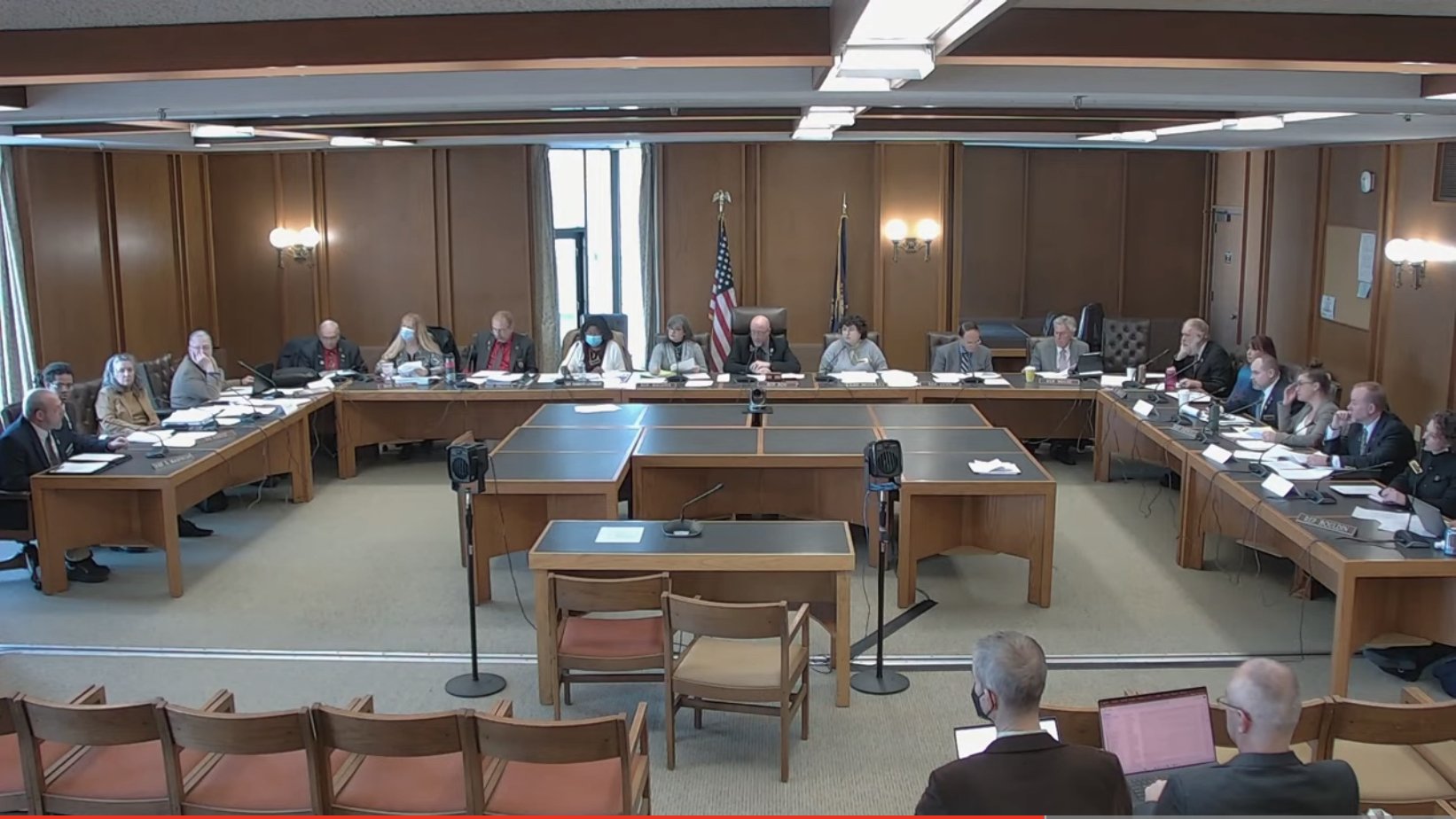3 Years After the Murder of George Floyd, NH Legislators Consider Additional Changes to Policing
While housing, energy costs, abortion rights, and the future of public education have dominated local news reports in this session of the legislature, efforts are also underway in Concord to further reduce the risk of tragic incidents involving interactions between police and members of New Hampshire’s minority communities. Some background and a quick update on the bills that have been filed and where they stand.
A Good Start Stalled?
Following the 2020 deaths of George Floyd and Breonna Taylor and the massive protests that followed in New Hampshire and across the U.S., the state legislature enacted police reform measures that included banning chokeholds and requiring officers to report incidents of police misconduct. In addition to signing these measures into law, Gov. Sununu created a commission to recommend additional changes to policing practices in New Hampshire. Late that year, the Commission on Law Enforcement Accountability, Community, and Transparency (LEACT) issued a series of legislative recommendations for change.
Some of the recommendations—including funding police bodycams and releasing the names of police officers on the state’s exculpatory evidence list (aka the Laurie list)—were addressed in a series of police reform bills that eventually became law in 2021.
At the time, Gov. Sununu made a point of saying that these measures were only the beginning. “The LEACT commission isn’t a one and done,” Sununu said as he signed them.
But two years later, the risk of the commission’s efforts becoming a “one and done” are very real. Since the 2021 legislation was signed, both the governor and the legislature have been largely silent on the matter and no additional police accountability and transparency measures have become law.
Obvious opportunities for additional progress include several proposed fixes with wide stakeholder support that were recommended by the commission and endorsed by the governor, but that were removed from the 2021 legislation that eventually became law. They include requiring law enforcement agencies to gather and make public demographic data for arrests, citations and stops; and including a person’s race on identification cards with the option for individuals to opt out.
Meanwhile, the work of the commission also shed light on additional ways to move New Hampshire forward. During the public input process, members of the public asked for a ban on racial profiling and prohibiting the use of no-knock warrants by police. But because commissioners were split on these issues and had agreed all LEACT recommendations would be unanimous, these items were not included on the final list of 48 recommendations.
Sadly, a legislative “study committee” set up to identify the best way to obtain racial and ethnic data during traffic stops eventually recommended (drum roll please…) setting up another committee to further study the issue. As far as I’ve been able to determine, it was never set up.
Avoiding a “One and Done”
Over the summer, I met with Joseph Lascaze and Frank Knaack of ACLU-NH and Professor Buzz Scherr of UNH Law School to plot next steps. The result were three bills I filed in November to address the issues of racial profiling and police accountability.
HB596 would ban the use of racial profiling by officers of local, county and state law enforcement officers. This is a step over 30 other states have taken that would officially prohibit the practice, which recent media reports show is still taking place in New Hampshire. The bill will go to the House floor in March with “no recommendation” after the Criminal Justice and Public Safety Committee deadlocked 10-10 along party lines when it came up for a vote.
HB597 would require the Department of Motor Vehicles add information on race and ethnicity to New Hampshire drivers licenses. This information would be collected during traffic stops, when motor vehicle citations are issued, and when individuals under suspicion of a crime are stopped on the street. Because drivers would have the option to decline providing this data, objections were raised about its potential usefulness. This argument resulted in the bill being killed on the House floor in February.
HB156 would expand the definition of police misconduct to include the misrepresentation of a material fact in a police report. Misrepresentation of facts may seem minor when compared to things like assault and tampering with witnesses or evidence that are already in our definition of police misconduct. But when these things happen and come to light, they undermine public trust in our police at a time when we need to be finding more ways to build trust. After amending the bill last week, the House Criminal Justice and Public Safety Committee unanimously recommended it as Ought to Pass 20-0. The bill will go on the consent calendar and will soon be headed over to the Senate.
Also currently in the mix is HB135, which would prohibit the use of no-knock warrants. Sponsored by Rep. Kris Schultz, the bill was amended to create exceptions also used by the U.S. Department of Justice that govern the use of these warrants by federal law enforcement officials. Last week, the amended bill was approved 19-1 by the Criminal Justice and Public Safety Committee and now heads to the House floor for a vote.
The bottom line is that the remaining bills have a long way to go before they reach the governor’s desk.
But with three out of four still in the mix, there is a distinct possibility that the work of the LEACT Commission may not be a “one and done” after all.

